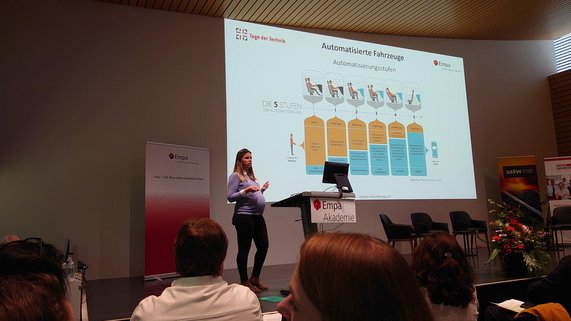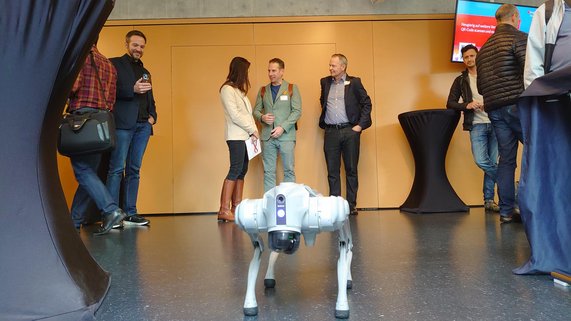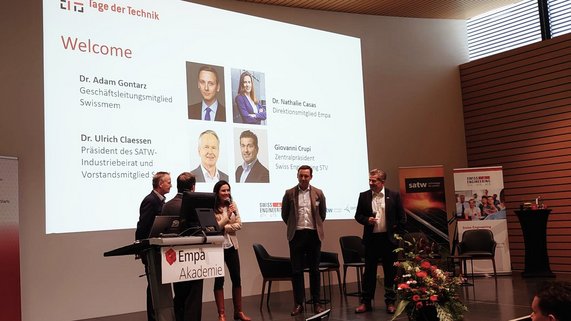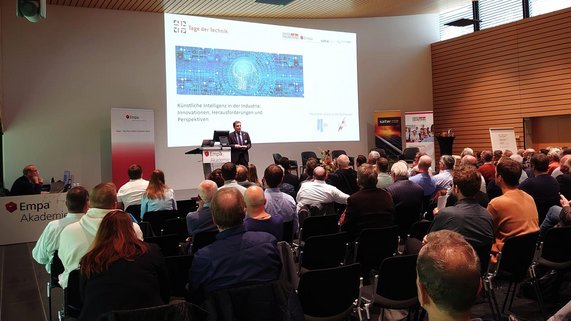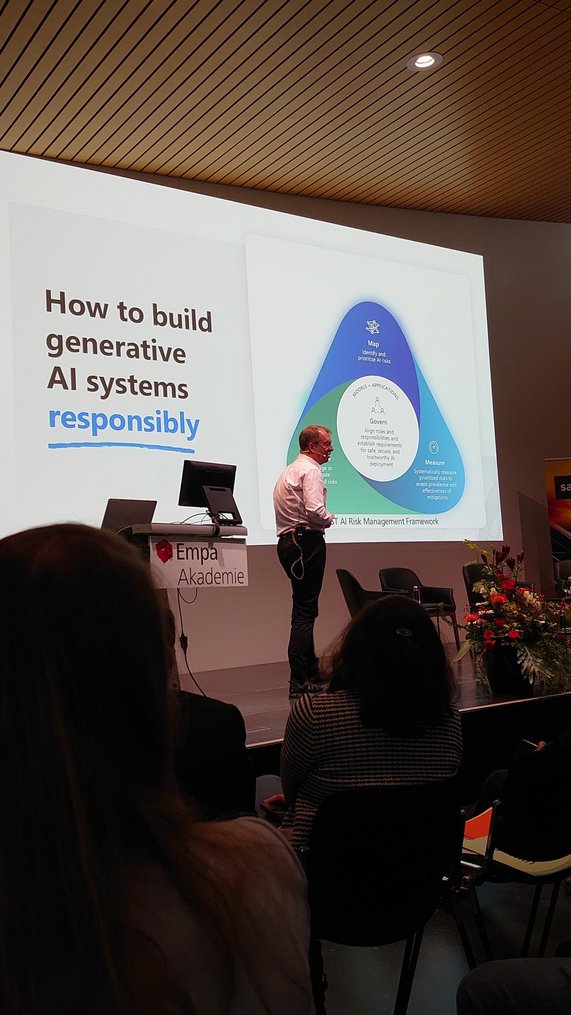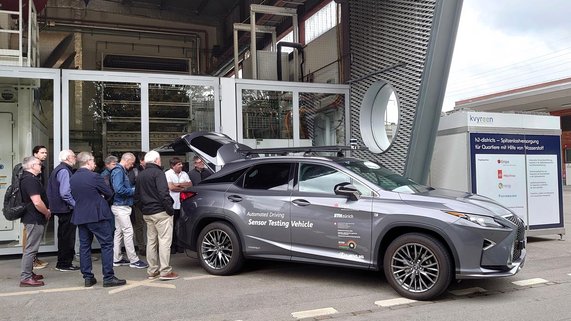Translated with DeepL
In his welcome address to the event partners, conference chair Prof. Dr. Roland Büchi (ZHAW) asked the representatives present themselves what challenges and opportunities they saw in connection with AI.
Dr Nathalie Casas (member of the Empa board of directors) mentioned the autonomous optimisation of processes and the processing of big data, where Empa relies on AI. Dr Ulrich Claessen (chairman of the SATW industry advisory board) praised the enormous development of AI based on big language data sets and already looked to the future, where he saw AI being used in real life to build engines or similar things.
Dr Adam Gontarz (member of the Swissmem management board) raised legitimate questions about the specific benefits. How can we use AI in a meaningful way to make real money, he asked the group. Furthermore, how do we want to regulate AI?
Giovanni Crupi, President of STV, advocated using AI to connect the various engineering disciplines and to further develop traditional skills. Above all, he said, AI is a matter for senior management so that engineers can develop and promote value creation.
Dr. Alisa Rupenyan-Vasileva, Professor of Industrial AI, ZHAW, spoke about ‘Data-driven optimisation in advanced manufacturing’ and highlighted the ways in which AI can optimise manufacturing. The aim here is to teach sensors and their systems to network their hearing, seeing, sensing, moving, reflecting and deciding. Depending on the process and level of automation (e.g. automated vehicles), AI requires different information and capabilities.
Dr. Miriam Elser, Head of Vehicle Systems Group, Empa, presented innovative algorithms for automated vehicles and explained that despite major successes, many technical, ethical and safety-related questions remain unanswered. The test vehicle developed by EMPA uses laser distance measurement, cameras, radar, ultrasound, GPS and sensor fusion to perform lightning-fast synchronous localisation, path planning, decision-making and semi-autonomous motion control.
Roger Halbheer, Chief Security Advisor at Microsoft and member of the Advisory Board Cybersecurity SATW, discussed the topics of AI and cybersecurity and questioned whether AI is more of a danger or a benefit. The widespread use of QR codes alone encourages many people to whip out their mobile phones without thinking. Above all, we should consider how we protect our AI and how we use AI to protect security. And we should think about what needs to be considered when building an AI ourselves.
Dr Felix Bünning from Viboo showed how significant CO2 savings could be made in Switzerland by reducing the energy consumption of buildings. With smart thermostats that forward measurement results, combined with weather forecasts and the behaviour of buildings, up to a third of heating costs could be saved thanks to Viboo's AI.
Marco Schmid, the owner of Schmid Elektronik, emphasised in his presentation the various meanings and possibilities that arise when thinking and acting dynamically in dimensions. The lively discussion that followed summarised the different levels that play a role when using AI.
The 2024 Technology Days were a great success and showed how Swiss industry is actively using AI to shape the future.
